Analyzing Unilever's Organizational Culture: A Detailed Report
VerifiedAdded on 2022/08/18
|5
|785
|16
Report
AI Summary
This report provides an analysis of Unilever's organizational culture, examining two key dimensions: team orientation and innovation and risk-taking. The report begins with an introduction to Unilever, a multinational consumer goods company, and defines organizational culture. It then delves into how Unilever fosters a collaborative environment through team orientation, emphasizing teamwork and joint problem-solving. Furthermore, the report explores Unilever's encouragement of innovation and risk-taking, highlighting how the company motivates employees to generate new ideas and approach challenges creatively. The conclusion summarizes how Unilever successfully cultivates a healthy organizational culture by embracing these two dimensions, leading to increased productivity and competitiveness. The report uses academic references to support the claims.
1 out of 5
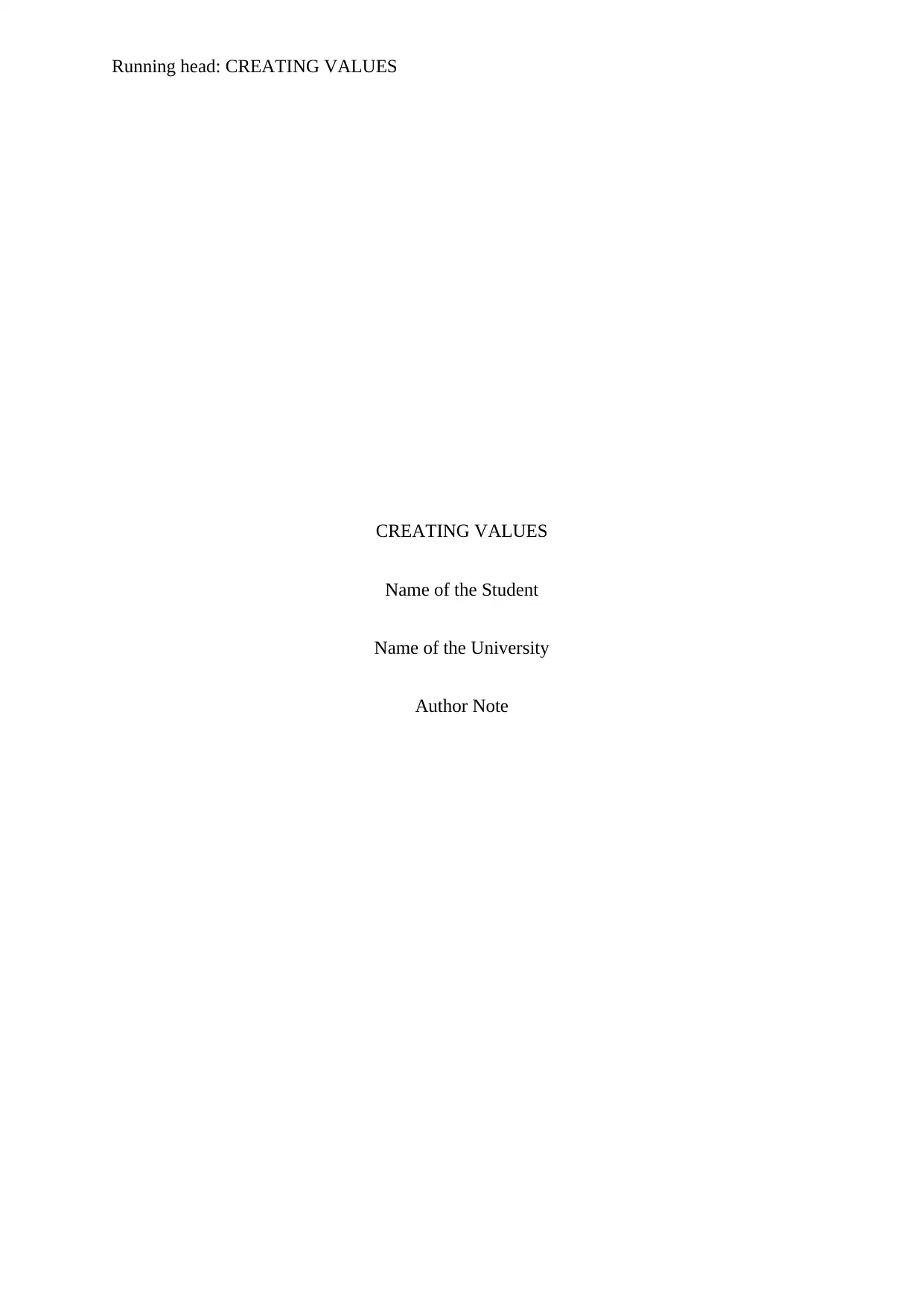
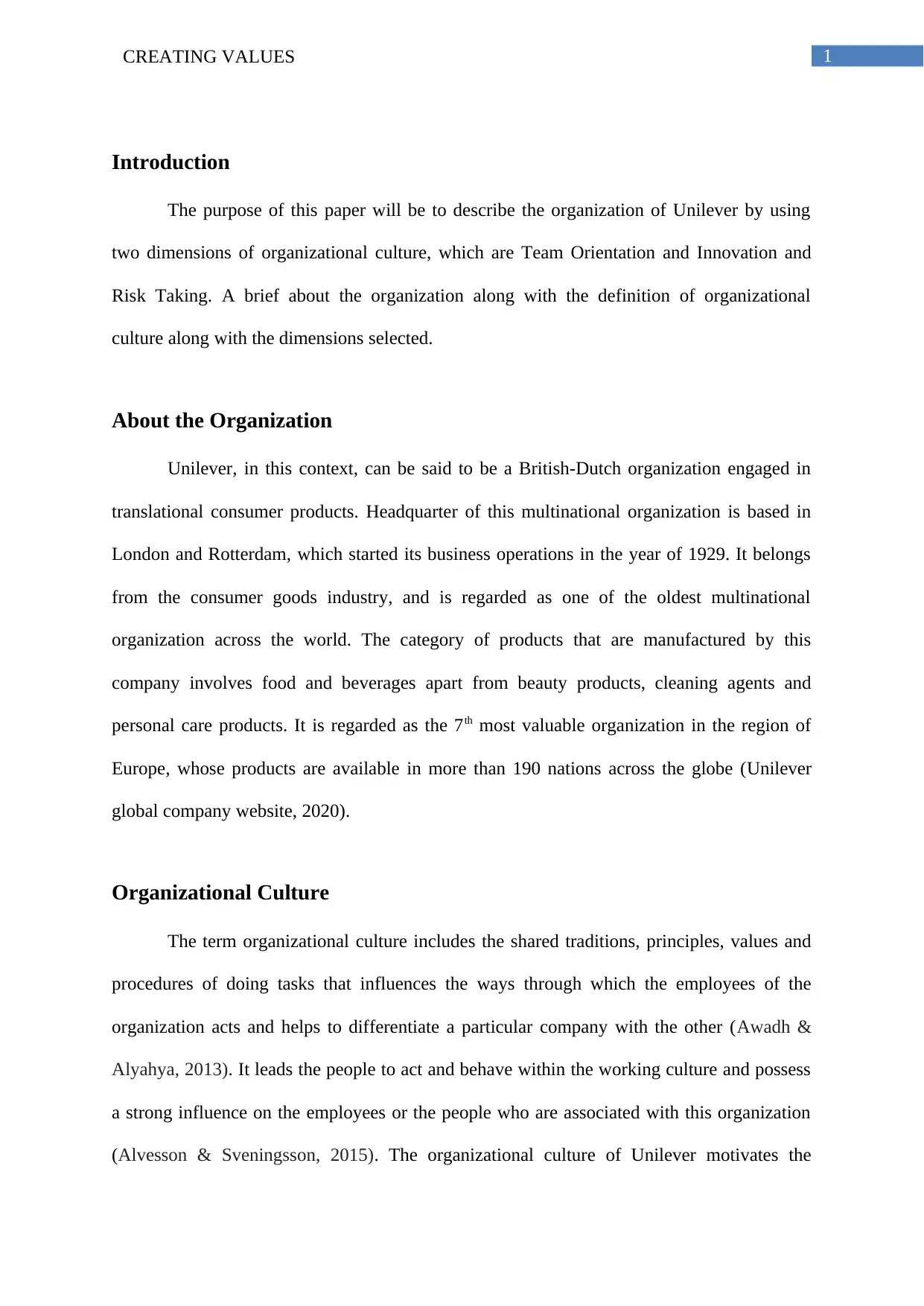
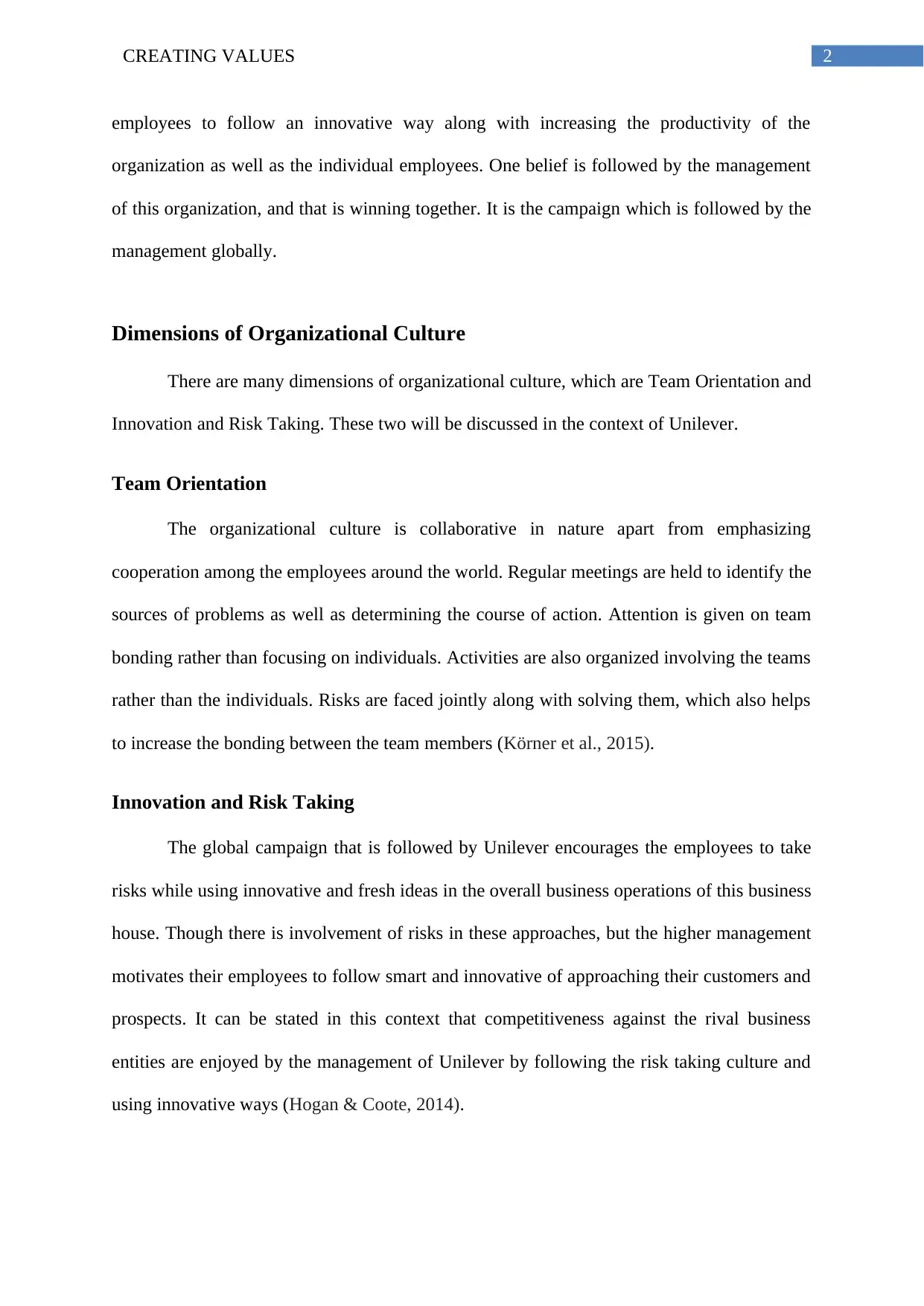

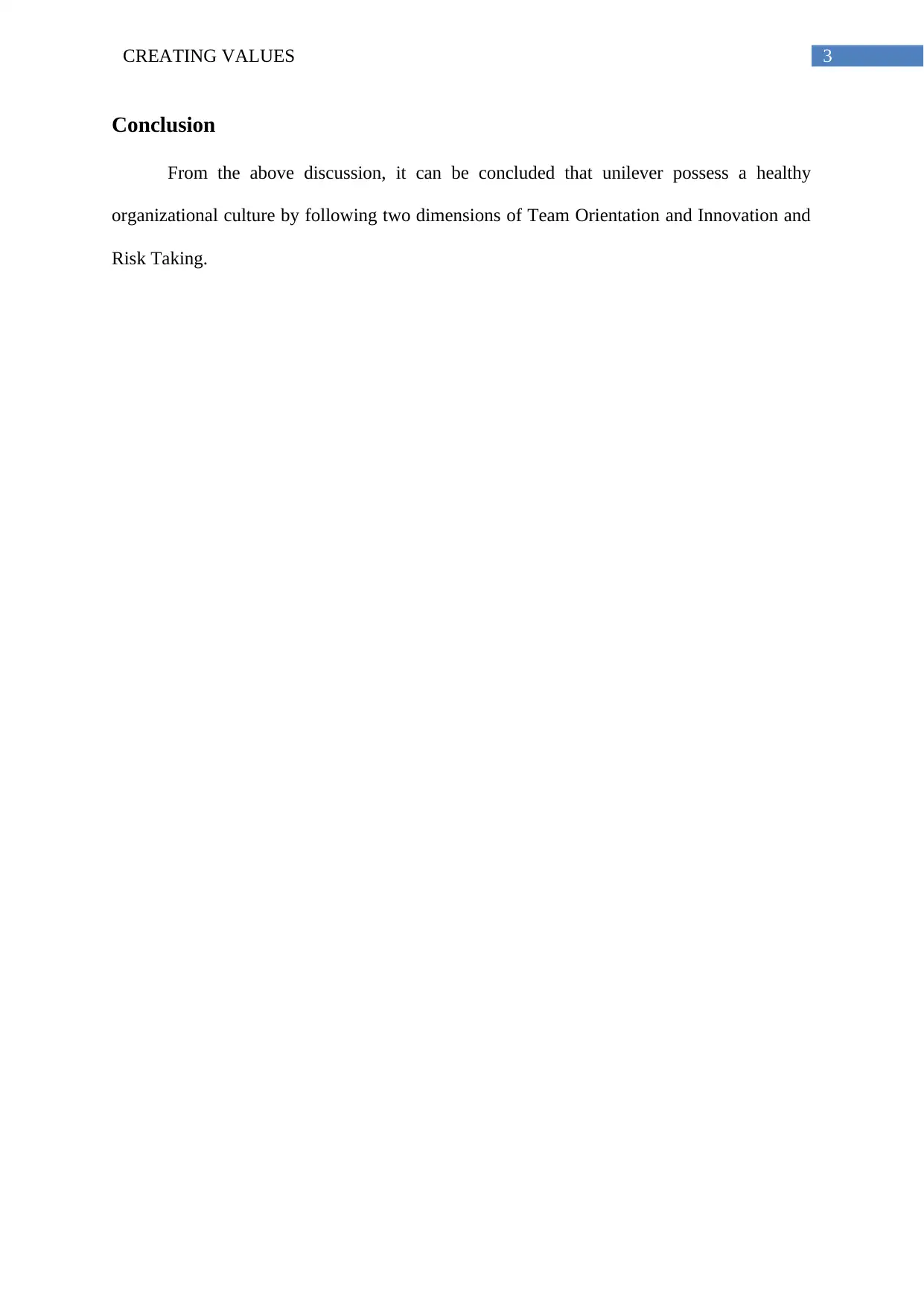
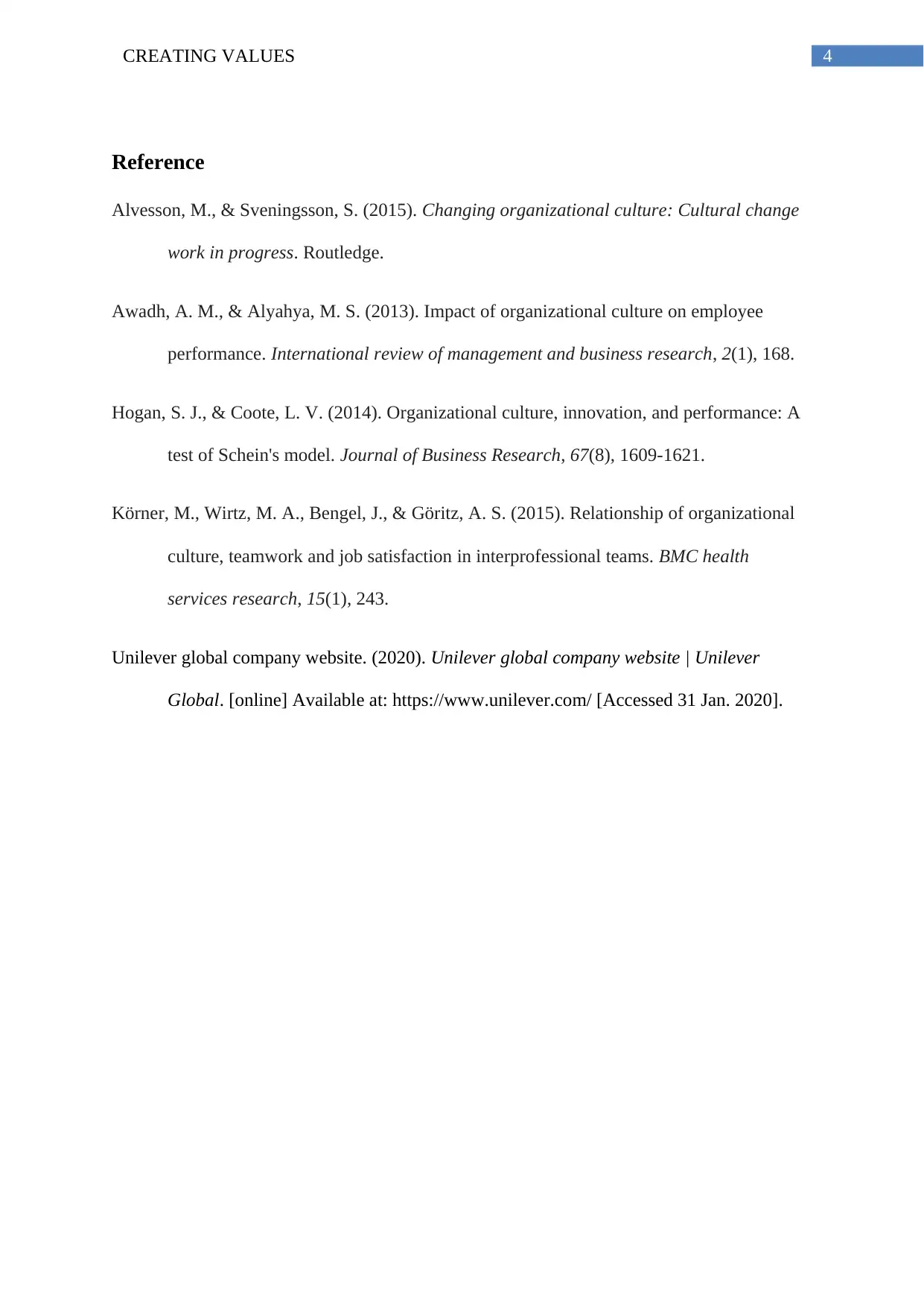





![[object Object]](/_next/static/media/star-bottom.7253800d.svg)